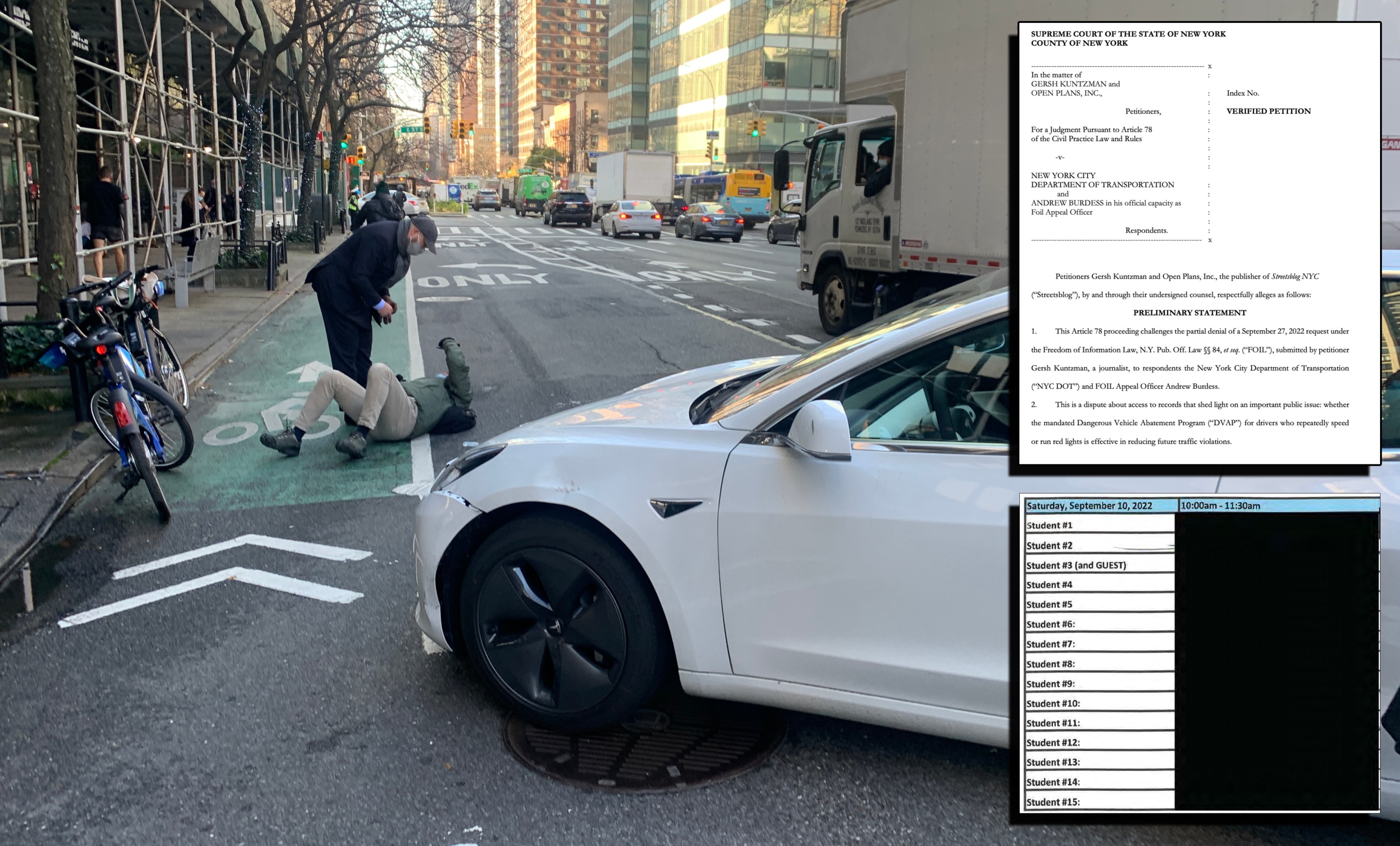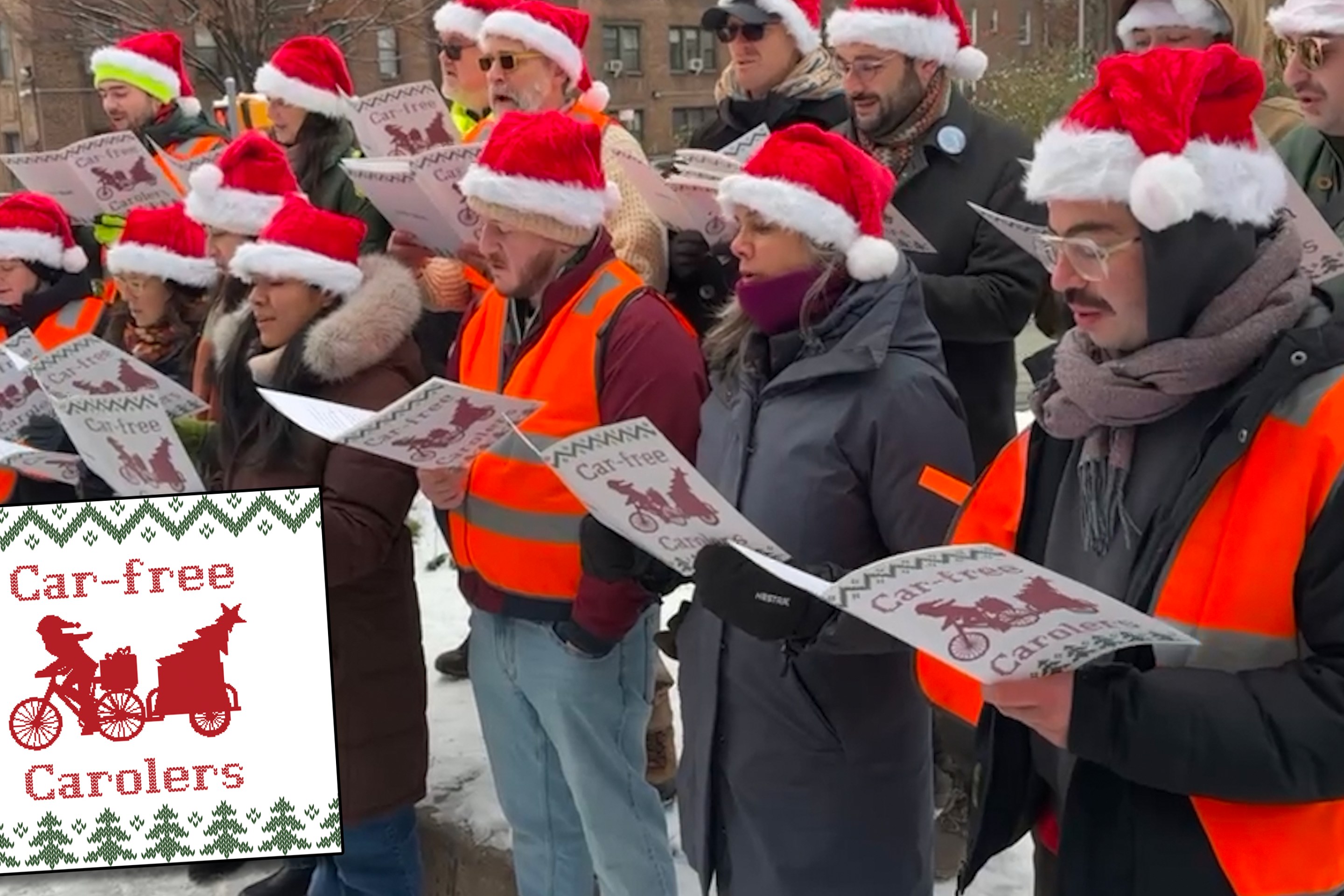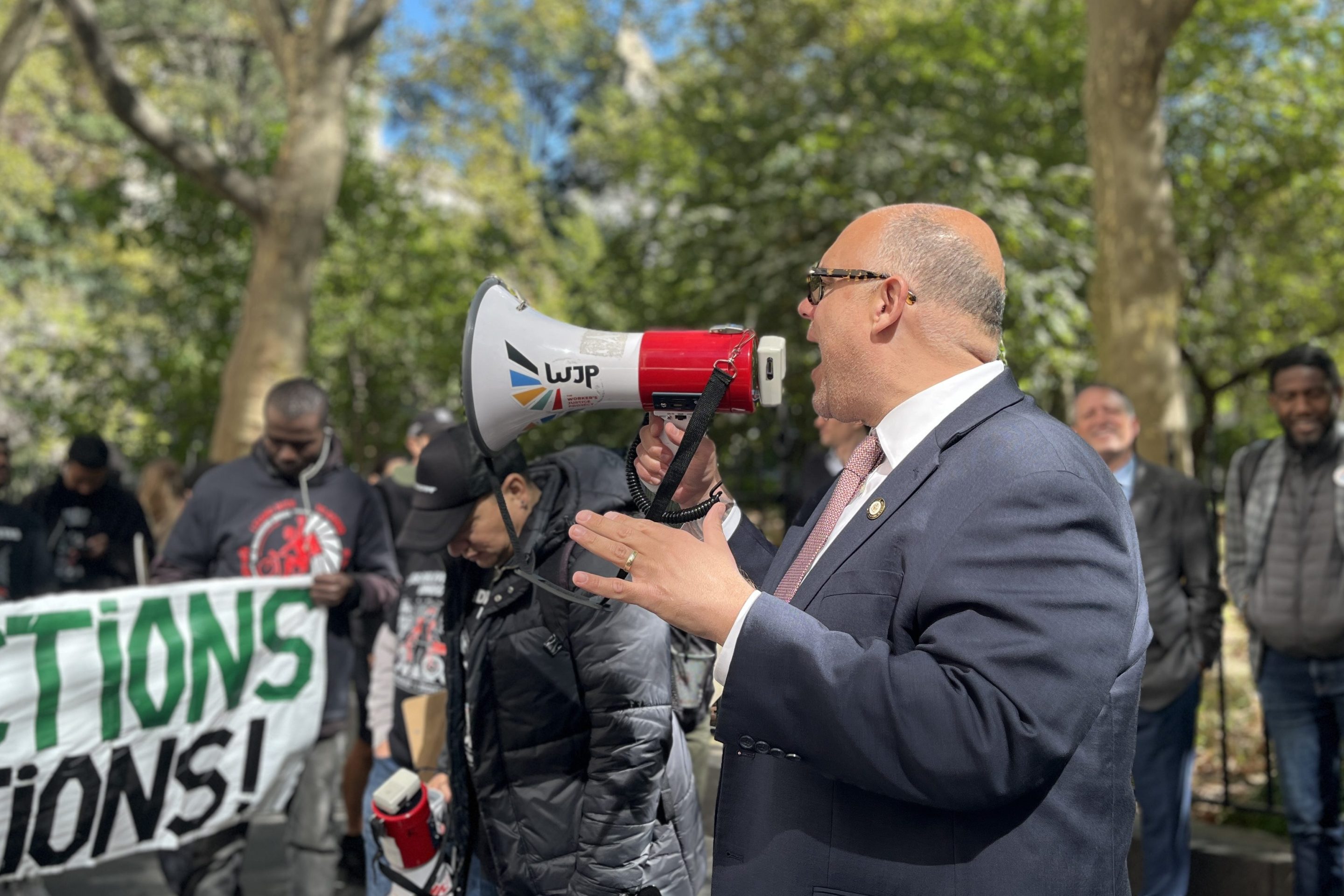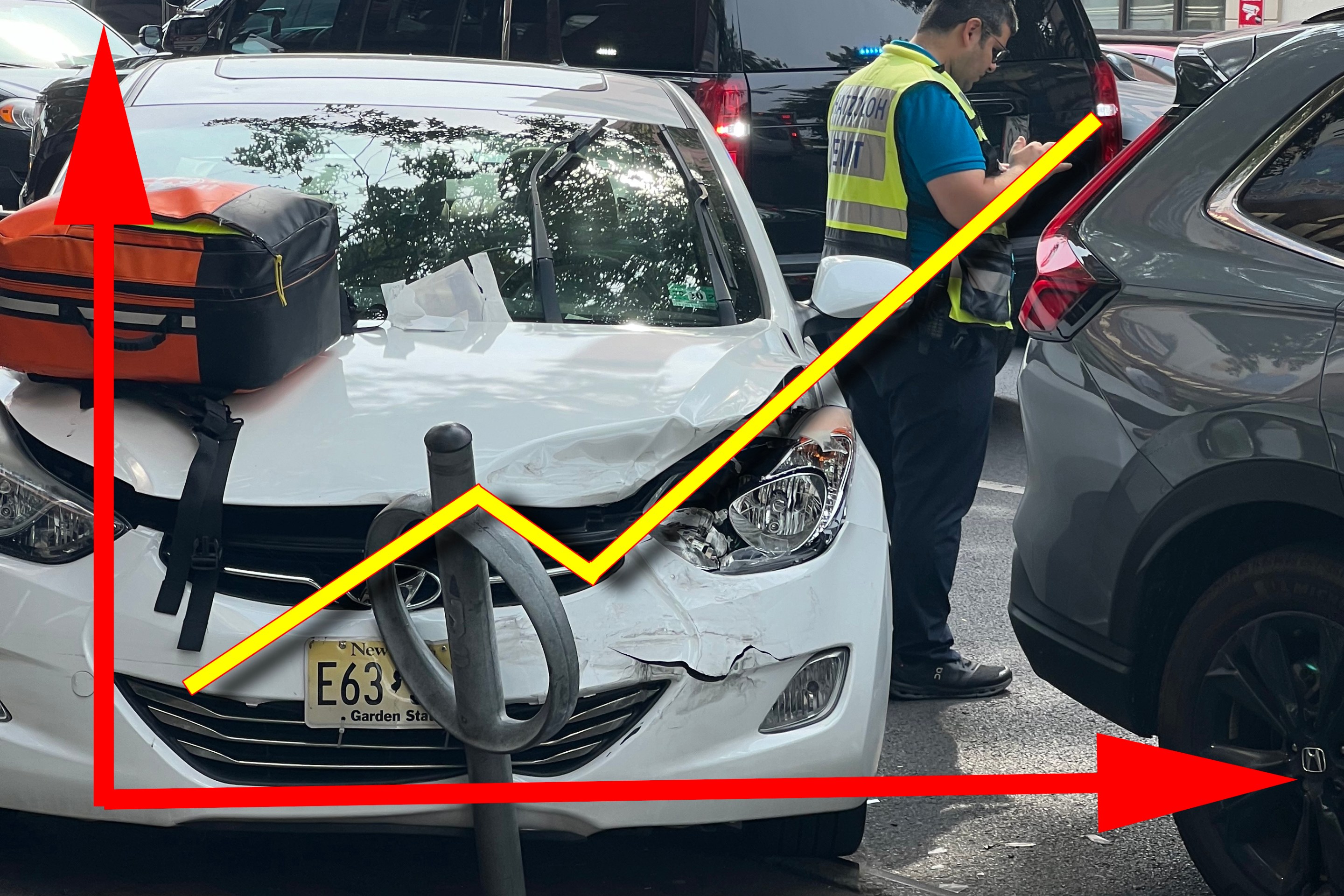We just sued the Department of Transportation ... for preventing us from doing our job.
Late on Friday, Streetsblog filed paperwork in Manhattan Supreme Court charging the DOT with "improper" withholding of crucial information that we sought under the Freedom of Information Law to analyze the agency's Dangerous Vehicle Abatement Program — a much-hyped safety effort that can subject drivers who acquire 15 camera-issued speeding tickets in one year to a safe-driving course or have their car seized.
At issue in the legal battle is a Sept. 27, 2022 FOIL request by Streetsblog Editor Gersh Kuntzman seeking the license plate numbers of all drivers who took the safety course. The purpose of that request is simple: There is no other way to assess the utility of the safety course other than by checking the plate numbers of all course participants to see if they've been dinged for subsequent speeding tickets.
DOT responded to the FOIL request by sending redacted logs containing the names and perhaps the license plate numbers of the hundreds of participants in the safety courses (that's Exhibit B). The reason for the redaction? "An agency may withhold documents which, if disclosed, would constitute an unwarranted invasion of personal privacy," the DOT said.
We did not appeal to get the participant names, but did appeal to get the license plate numbers on the grounds that there's no "privacy interest here ... because the city already releases license plate numbers in its database of speed camera violators."
The DOT denied that appeal — claiming that it doesn't have the plate numbers. Such a claim is implausible because the orders to appear at the safety course are sent to car owners based on plate numbers. So we sued last week under Article 78 — the portion of New York State law that allows the public to challenge an action (or inaction) by government agencies.
The DOT, according to the suit filed on our behalf by the Cornell Law School First Amendment Clinic, has "no reasonable basis for denying access to the requested information. ... The information requested by Petitioners is of significant interest and concern to the general public."
“By withholding license plate numbers from Streetsblog that are clearly public, the NYC DOT has stymied Streetsblog’s efforts to report on a significant matter of public concern: the effectiveness of a city-run program seeking to curb dangerous driving in the wake of a speeding epidemic,” Streetsblog's lawyer Heather Murray of the Cornell Law School clinic said in a statement. "We call on the DOT to comply with FOIL and release the information immediately."
Our suit is bolstered by an opinion by the Committee on Open Government, a state panel that oversees compliance with the Freedom of Information Law. A review of the back-and-forth between DOT and Streetsblog led the committee to conclude that DOT "has not met its burden of proof in denying access" to the information. A release of the plate numbers, given that the city already maintains a database of all license plates caught on camera for speeding, does "not constitute an unwarranted invasion or personal privacy," the group added in its review (which is Exhibit H in our suit).
The committee also questioned DOT about its claim that it does not have the license plate numbers, but, like us, did not get an answer.
The DOT has long stymied efforts to gauge the success of its Dangerous Vehicle Abatement Program. Streetsblog has repeatedly asked whether drivers with the requisite 15 or more camera violations have taken the course, but has been denied such information. The agency is also required by law to report to the City Council about the success of the program, but it blew off this year's Aug. 1 deadline, as Streetsblog reported.
The agency told Streetsblog that nearly 1,200 drivers have taken the safety class — though tens of thousands of drivers have hit the 15-ticket threshold. The Department of Finance said the city has seized just 16 vehicles over the three years of the program and just four since late last year. A vehicle can be seized if the driver refuses to take the course — or if the driver gets another speeding ticket.
But without the plate numbers, it is impossible to judge how successful the course is.
Last year's "report" to the Council consisted of two sentences and no analysis. It remains unclear whether the courses work, which is why we will see DOT in court.
We reached out to DOT for comment and will update this story if we hear back. Typically, city agencies do not respond to requests for comment on pending litigation.
Read the suit for yourself:






